Several practical home remedies may help ease acne symptoms, including tea tree oil, aloe vera, and regular exfoliation. Read on to learn how these approaches may work.
Acne is one of the world’s most widespread skin issues, affecting roughly 50 million Americans each year.
Standard acne treatments — such as salicylic acid, niacinamide, or benzoyl peroxide — are proven to be the most effective options, but they can be costly and sometimes cause unwanted side effects like dryness, redness, discoloration, or irritation.
That has led many people to try treating acne naturally at home. Still, numerous home cures lack robust scientific evidence, and more research is needed to confirm their effectiveness. If you’re interested in alternatives, however, there are some approaches worth considering.
Below are 14 commonly used home remedies for acne
Use apple cider vinegar
- Pros: inexpensive, widely available, may improve the look of acne scars
- Cons: can irritate or burn the skin
Apple cider vinegar comes from fermenting apple cider, the unfiltered juice of pressed apples. Like other vinegars, it’s noted for antimicrobial and astringent properties.
Although certain elements in apple cider vinegar could theoretically help acne, there’s currently no solid evidence to confirm its effectiveness for this use.
Applying apple cider vinegar directly to skin can cause burns and irritation, so most dermatologists advise caution. If you opt to try it, use small amounts and dilute it with water.
Take zinc supplements
- Pros: backed by some studies, offers multiple health benefits
- Cons: can upset the stomach, not effective when applied topically
Zinc is an essential mineral important for cell growth, hormone production, metabolism, and immune function.
Compared with many natural acne treatments, zinc is relatively well researched.
According to a pooled analysis, individuals given zinc experienced notable reductions in inflamed blemish counts versus those who did not receive zinc.
The recommended safe upper intake for zinc is 40 milligrams (mg) per day, so it’s best not to exceed that unless under medical supervision.
Excessive zinc intake can cause adverse effects like stomach pain and gastrointestinal irritation.
Topical zinc has not been shown to be effective, possibly because zinc doesn’t penetrate the skin well.
Make a honey mask
- Pros: antibacterial qualities, simple to prepare
- Cons: limited research supporting its effectiveness
2020 research found that honey can inhibit the growth of P. acnes, the bacterium linked to acne. However, that doesn’t necessarily prove honey cures acne.
The anti-inflammatory and antibacterial traits of honey might reduce acne, but further studies are necessary to confirm its benefit.
Spot treat with tea tree oil
- Pros: requires only a small amount, can be left on overnight, natural option
- Cons: can be drying, essential oils aren’t FDA-regulated
Tea tree oil is an essential oil distilled from the leaves of Melaleuca alternifolia, a small Australian tree.
A small trial showed that compared with benzoyl peroxide, a tea tree oil gel caused less dryness and irritation, and users reported greater satisfaction.
Tea tree oil is potent and should always be diluted before skin application.
How to
- Combine 1 part tea tree oil with 9 parts water.
- Use a cotton swab to apply the mixture to blemishes.
- Follow with a moisturizer if desired.
- Repeat once or twice daily as needed.
Research points to potential benefits, but the Food and Drug Administration (FDA) does not regulate essential oil quality or purity. Discuss use with a healthcare provider, choose reputable brands, perform a patch test, and dilute essential oils with a carrier oil to prevent skin burns.
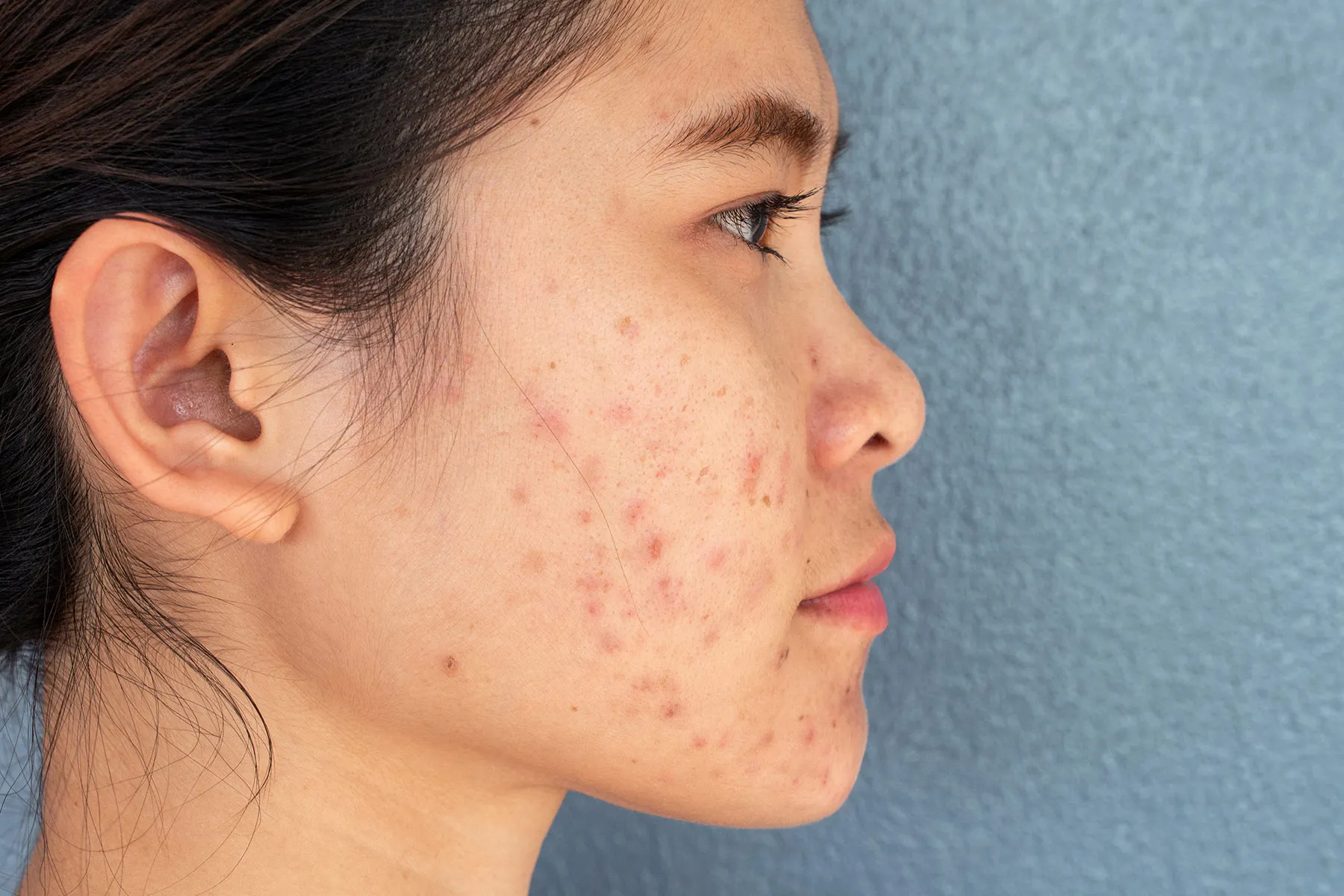
Apply green tea topically
- Pros: easy to prepare, offers multiple benefits, natural
- Cons: limited number of studies
Green tea is rich in antioxidants, and drinking it supports overall health. It may also help reduce acne.
According to 2024 research, polyphenols in green tea fight bacteria and reduce inflammation, two key contributors to acne.
There’s limited research on the effects of drinking green tea specifically for acne, and more studies are needed.
Topical application of green tea may also provide benefits.
A clinical trial found that applying green tea extract to skin significantly lowered sebum production and reduced pimples in people with acne.
You can buy products containing green tea extract or make a DIY treatment at home.
How to
- Brew green tea in boiling water for 3 to 4 minutes.
- Let the tea cool to room temperature.
- Apply the tea to skin with a cotton ball or put it in a spray bottle to mist on.
- Allow it to dry, then rinse with water and pat skin dry.
You can also mix leftover tea leaves with honey to create a face mask.
Try witch hazel
- Pros: natural ingredient, common in skincare products
- Cons: very limited evidence supporting acne treatment
Witch hazel is derived from the bark and leaves of the North American shrub Hamamelis virginiana. Currently, there’s little direct research on witch hazel for acne.
Some evidence suggests witch hazel may combat bacteria and reduce skin irritation and inflammation, which can contribute to acne.
Moisturize with aloe vera
- Pros: natural, present in many products, can be combined with other ingredients
- Cons: limited studies specifically on acne, many commercial gels contain additives
Aloe vera is a tropical plant whose clear leaf gel is commonly added to lotions, creams, and soaps.
It contains compounds like salicylic acid and sulfur, which are commonly used in acne treatment.
According to 2020 research, aloe vera is frequently used for:
- abrasions
- rashes
- burns
- wounds
- skin inflammation
While findings are promising, more research is needed to establish the anti-acne effects of aloe vera itself.
How to
- Use a spoon to scoop gel from an aloe leaf.
- Apply the gel directly to cleansed skin as a moisturizer.
- Use once or twice daily, or as desired.
Store-bought aloe gel is convenient, but choose a product with pure aloe and no unnecessary additives.
Take fish oil supplements
- Pros: simple to add, available through foods
- Cons: effects may take time to appear
Omega-3 fatty acids are beneficial fats with many health advantages. Fish oils supply two primary omega-3s: eicosapentaenoic acid (EPA) and docosahexaenoic acid (DHA).
A study showed that higher levels of EPA and DHA can lower inflammatory markers, which may reduce acne risk.
You can obtain omega-3s by eating:
- salmon
- sardines
- anchovies
- walnuts
- chia seeds
- ground flax seeds
- fish oil supplements
Exfoliate regularly
- Pros: easy to perform at home, many products available, chemical and physical options exist
- Cons: risk of over-exfoliation
Exfoliation removes the top layer of dead skin cells and may improve acne by clearing the skin cells that block pores.
Removing that outer layer can also help topical acne treatments penetrate better.
Research into exfoliation’s direct effects on acne is limited.
A 2023 study found exfoliation can enhance skin health and appearance, but more targeted acne research is required.
Caution: physical scrubs can irritate or damage skin. Many dermatologists advise gentle chemical exfoliation with salicylic or glycolic acid products instead.
Follow a low-glycemic diet
- Pros: lowers insulin levels, benefits overall health
- Cons: harder to monitor, limited evidence
A food’s glycemic index (GI) measures how quickly it raises blood sugar.
Eating high-GI foods triggers insulin spikes, which can raise sebum production and potentially influence acne severity.
In a trial, 66 participants followed either a standard or low-glycemic diet. After two weeks, those on the low-GI plan had reduced levels of insulin-like growth factor-1 (IGF-1), a hormone linked to acne development.
This suggests a low-GI eating pattern may benefit people prone to acne, but larger, longer studies are needed.
Low-GI food choices include:
- fruits
- vegetables
- legumes
- nuts
- whole or minimally processed grains
Reduce dairy intake
- Pros: may lower acne in some people
- Cons: contentious and requires more evidence
The dairy–acne connection is debated.
One study of 10- to 24-year-olds found that drinking whole milk three or more days per week was associated with moderate to severe acne.
Conversely, a separate study of over 20,000 adults found no link between milk consumption and acne.
These studies rely on self-reported data, so more research is necessary to determine any true causal relationship.
Manage stress
- Pros: may reduce acne, benefits overall wellbeing
- Cons: evidence is still emerging
The relationship between stress and acne isn’t fully clarified.
Stress can also prompt more face touching or picking, which spreads bacteria and can worsen breakouts.
2024 research suggests stress hormones can boost sebum production and inflammation, potentially aggravating acne.
Ways to lower stress include:
- getting adequate sleep
- exercising regularly
- practicing yoga
- meditating
- doing deep-breathing exercises
Exercise consistently
- Pros: may lower acne, supports overall health, helps regulate hormones
- Cons: failing to cleanse skin after workouts can worsen breakouts
There’s limited direct research on exercise and acne, but physical activity influences body systems in ways that may benefit skin.
Research indicates exercise affects hormone levels and regulation.
Health guidelines recommend adults do a combination of aerobic and strength activities totaling about 150 minutes per week, including walking, hiking, running, or weightlifting.
Tip: Always wash your face after exercising. Cleansing with water and a mild cleanser removes sweat and bacteria to help prevent breakouts.
Try brewer’s yeast
- Pros: usable orally or topically, readily available
- Cons: may require months to show effects
Brewer’s or baker’s yeast might offer benefits for acne.
A 2021 publication reported that a strain called Hansen CBS could help reduce acne when taken orally.
More recent research shows that a brewer’s yeast elimination diet may help another skin condition, hidradenitis suppurativa.
Given the limited data, additional studies are needed to confirm brewer’s yeast’s role in acne treatment.
How to
- Mix one packet of powdered brewer’s yeast with 1 tablespoon of lemon juice.
- Stir until well combined.
- Apply the mixture to a clean face and leave on for 1 minute.
- Rinse with lukewarm water.
- Pat the skin dry.
You can also add brewer’s yeast to beverages or take it as a supplement.
Be cautious with citrus juices like lemon on skin; they can cause photosensitivity, increasing irritation and rash risk if exposed to sunlight. Wear SPF and protective clothing if you’ll be in the sun.
When to consult a doctor
If you have moderate to severe acne, seek professional care for relief. Prescription-strength therapies are available.
See a dermatologist if you:
- have tried many treatments without improvement
- experience recurring breakouts that clear and return
- develop acne on areas like the thighs or upper arms
- have painful, deep lesions under the skin
- have breakouts lasting for years
- find your acne negatively affects confidence, self-esteem, or social life
- suspect a new medication might be triggering your acne
- notice acne that leaves dark spots
Frequently asked questions
Do home remedies work for acne?
Many people try natural options. While most home remedies haven’t been proven clinically effective, they remain alternative choices some individuals explore.
If you have severe acne, consider consulting a dermatologist.
How can acne scars be treated?
Acne scars don’t typically resolve on their own. In-office treatments like lasers, microneedling, microdermabrasion, resurfacing, or fillers can improve their appearance.
Regular exfoliation and some home remedies, such as diluted apple cider vinegar, may also help lessen scar visibility.
The bottom line
Acne is a common skin condition with multiple contributing factors.
Experts agree that conventional treatments — including salicylic acid, niacinamide, and benzoyl peroxide — are the most effective, although they can sometimes irritate skin.
Many people opt for natural remedies. Most home solutions haven’t been definitively proven in clinical trials, but they are available as alternative approaches.
Still, consulting a dermatologist may be beneficial if you’re dealing with severe acne.

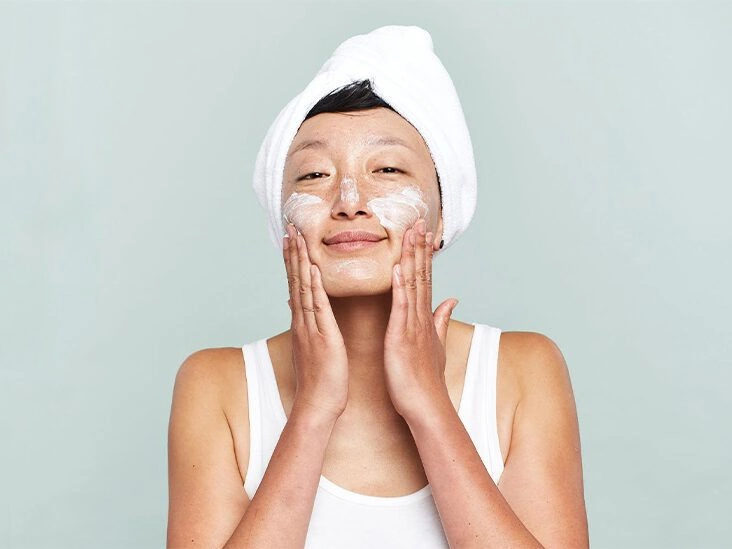
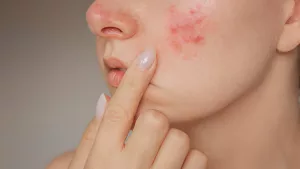
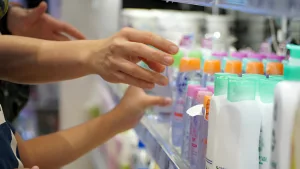

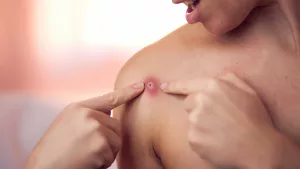
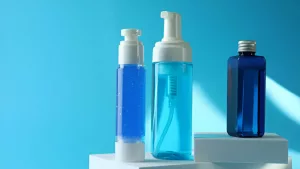
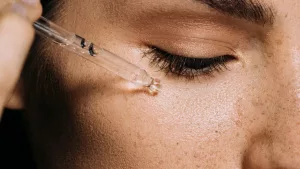

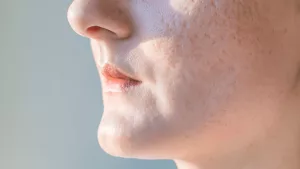

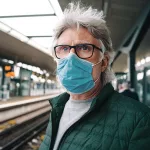


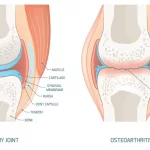
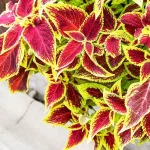



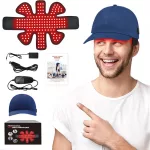

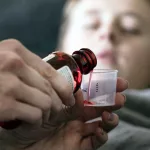

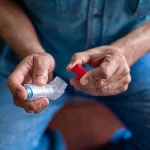

Leave a Reply
You must be logged in to post a comment.